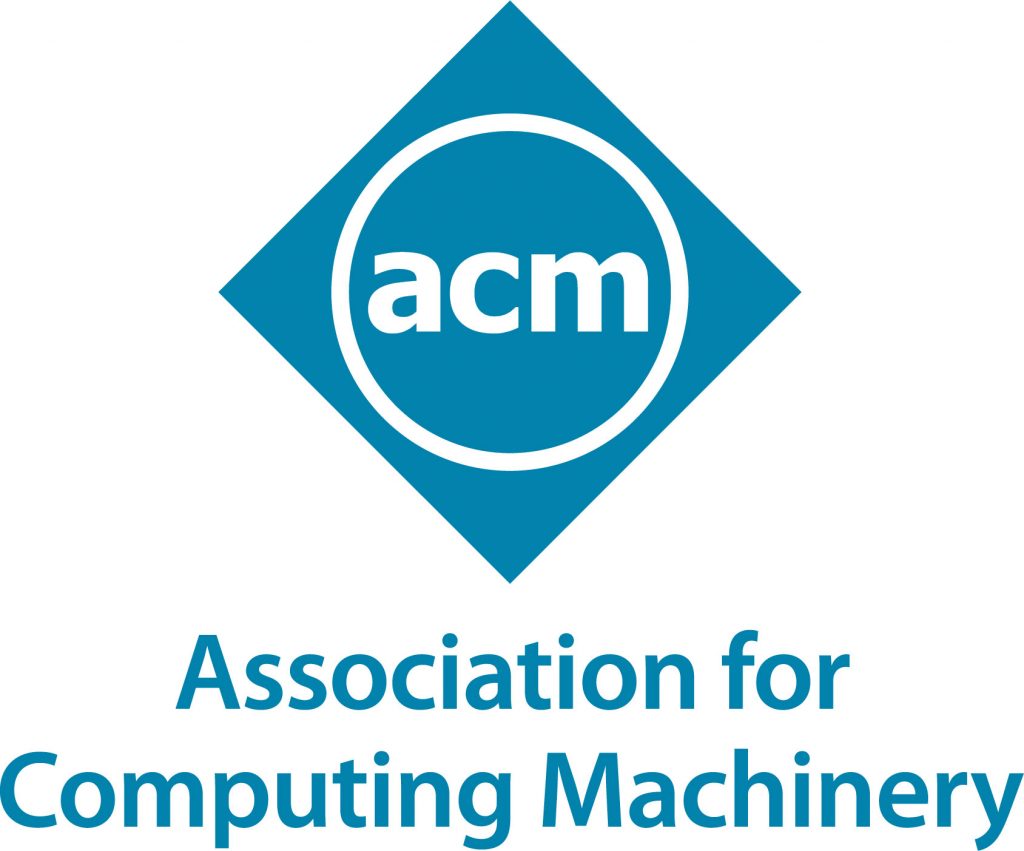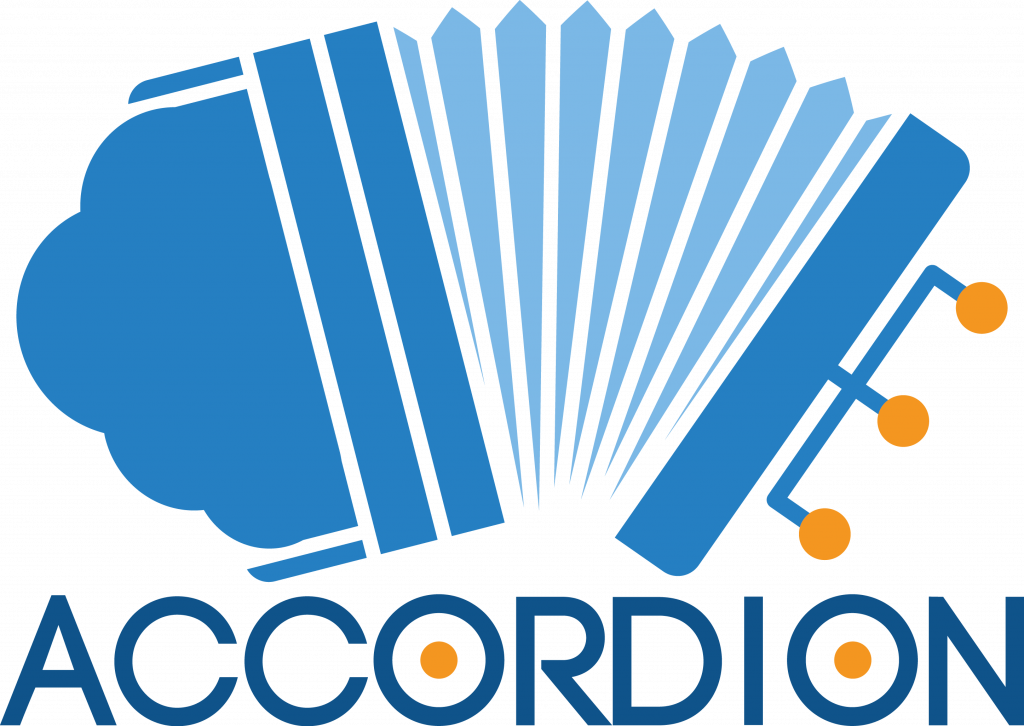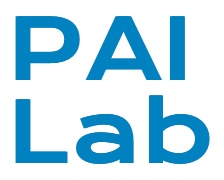FRAME
5th workshop on Flexible Resource and Application Management on the Edge
In association with ACM HPDC 2025
Notre Dame, IN, USA
July 20-23, 2025
We are proud to introduce the
5th workshop on Flexible Resource and Application Management on the Edge
to researchers, industry stakeholders, academics and PhD students.
Organized in association with
IMPORTANT DATES
26 March 23 April, 2025 Submission of regular and short papers
10 May 16 May, 2025 Notification of acceptance
23 May, 2025 Camera-ready paper submission
20 July 2025 – Workshop day for HPDC’25 (20-23/07/2025)
Organizing Committee
- Workshop Program
- Registration
- Camera ready submission
This year’s edition of FRAME is organized jointly with the FLEXSCIENCE workshop.
Venue: Morris Inn, room Hesburgh
Date: July 20th, 13h30 – 17h00
Papers have 20 min slots (15 min presentation + 5 min Q&A).
Preliminary program:
-
13h30 Opening – chair Alexandru Costan
-
13h40 Keynote – chair Bogdan Nicolae
-
Michael E. Papka, Title TBA
-
-
14h30 Session 1 – FRAME – chair Alexandru Costan
-
Rusty-Cracker: A Multi-core Connected Components Library in Rust. Davide Rucci, Daniele Sanpietro, Emanuele Carlini, Matteo Mordacchini, Patrizio Dazzi
-
-
15h00 Coffee Break
-
15h30 Session 2 – FlexScience – chair Kento Sato
-
Towards a Federated Approach to Complex Digital Twins. H. Ahmed, D. Crawl, I. Altintas
-
RAPTOR: Reconfigurable Advanced Platform for Transdisciplinary Open Research. H. Najafi, P. Poudel, K. Bahreini, J. Ibarra, F. Saeed, Y. Li, J. Obeysekera, J. Liu
-
Building Flexible Physics-Informed Neural Networks with Fast Fourier Transform Analysis. R. Shehayib, J. Vap, P. Kogge
-
Efficient and Cost-Effective HPC on the Cloud. A. Bhosale, L. Kale, S. Kokkila-Schumacher
-
-
16h50 Closing Remarks
Registration Requirement.
To ensure inclusion in the workshop and proceedings, at least one author per accepted paper MUST REGISTER at the full HPDC conference rate. This registration helps cover the costs associated with the event.
CLOSED
1. Submission Process via HotCRP.
Please carefully follow the submission instructions provided by HotCRP. Ensure that the final version of your paper is uploaded through the HotCRP platform by 23 of May.
2. FORMATTING Requirements.
All manuscripts MUST BE formatted using the >>ACM Master Template in the sigconf format<< (please ensure you use the latest version).
Templates and documentation are available at:
https://www.acm.org/publicatio
3. Page Limit.
The final version must strictly adhere to a MAXIMUM LENGTH of 5 pages. Submissions exceeding this limit will not be accepted.
4. Formatting and Metadata Compliance.
Your paper must follow the ACM proceedings format and conform to the style requirements of the workshop. Be sure to complete all required metadata, including:
– Author names and affiliations
– Contact details
– ORCID identifiers for each author (REQUIRED)
among the metadata, authors will also be required to separately input the list of references in the paper within the submission form. Several formats are supported, including .bbl files from Latex and simple text files.
5. ACM e-Rights Form.
You will be required to complete the ACM e-rights form as part of the publication process.
6. Final Upload.
Once all revisions are made, please update the final version of your paper via HotCRP, ensuring that it matches the formatting and content standards outlined above. ACM requires both the source files (e.g., LaTeX files with all necessary assets or Word documents) and the final PDF. Upload both the source materials and the PDF separately via HotCRP.
- Luca Ferrucci
- Massimo Coppola
- Hanna Kavalionak
- Antonios Makris
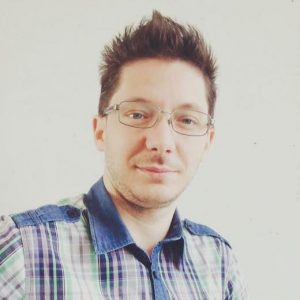 Luca Ferrucci, University of Pisa, luca.ferrucciATunipi.it, General Chair
Luca Ferrucci, University of Pisa, luca.ferrucciATunipi.it, General Chair
Luca is a researcher at the Università di Pisa since October 2022, and has been a post-doc researcher at the ISTI-CNR in Pisa since 2014. His PhD thesis, from the Politecnico di Milano in 2013, was related to the field of integration of formal methods in the industry control code development process, by leveraging temporal logic based modelization, validation and verification tools and techniques. His interests and research range from eGovernment tools and interoperability issues between different international standards, to domotics interoperability frameworks. More recently, orchestration and resource management in Cloud and Edge cloud computing as a member of the H2020 ACCORDION and Charity european research projects. He is part of the CINI HPC Lab, participating in “Future HPC & Big data” of the Italian research center on High Performance Computing, Big Data and Quantum Computing (ICSC), his main research interests are scheduling and dynamic deploying of HPC system jobs for HPC-Continuum convergence, and Faas (Function-as-a- service) environment on the Continuum.
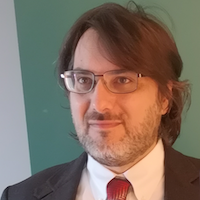 Massimo Coppola, ISTI-CNR, massimo.coppolaATisti.cnr.it, Program Co-Chair
Massimo Coppola, ISTI-CNR, massimo.coppolaATisti.cnr.it, Program Co-Chair
Massimo is a researcher at the ISTI-CNR. He holds a PhD in Computer Science at the University of Pisa, where he was with the Parallel Architectures research group and where he still teaches Advanced Parallel Computing courses. His research interests revolve around parallel and distributed platforms and programming and their applications. They include Cloud computing and Federations, tools and performance models for structured parallel computing, as well as all aspects of exploiting large-scale heterogeneous parallel platforms, i.e., run-time support, deployment, and distributed management of parallel, self-adapting applications; Data Mining and ML for large data sets; FPGA- and GPU-based parallel computing. He was involved, as a proposer and participant, in several EU projects including lately H2020 EU projects Basmati, ACCORDION, TEACHING, and CHARITY. He was the CNR team leader and head of the Cloud Federation work package in FP7 Contrail, and (co)organizer of several past workshops and conferences, including the HPC-GECO – CompFrame and the FRAME series itself.
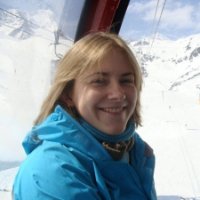 Hanna Kavalionak, ISTI-CNR, hanna.kavalionakATisti.cnr.it, Program Co-Chair
Hanna Kavalionak, ISTI-CNR, hanna.kavalionakATisti.cnr.it, Program Co-Chair
Hanna is a researcher at the ISTI-CNR. Previously, she has been a post-doc researcher at the University of Florence, at the Department of Mathematics and Informatics in the group “Resilient Computing Lab”. She is currently working in Cloud and Edge resource indexing and discovery in the context of the H2020 ACCORDION and CHARITY european research projects. She received her PhD from the University of Trento, with the thesis “Autonomous regulation of resources in cloud-based, peer-assisted distributed systems”. Her research interests include peer-to-peer networks, data analyses solutions for indoor localization, and modeling and dependability analyses of complex cyber-physical systems of systems, in which she has published several papers in international conferences and journals.
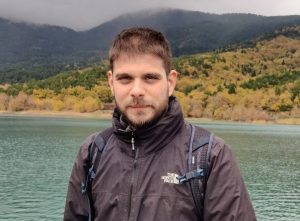 Antonios Makris, National Technical University of Athens, antoniosmakrisATmail.ntua.gr, Program Co-Chair
Antonios Makris, National Technical University of Athens, antoniosmakrisATmail.ntua.gr, Program Co-Chair
Antonios Makris is currently a Senior Researcher at the School of Electrical and Computer Engineering of the National Technical University of Athens. He received his BSc Degree in Computer Science in 2013 and MSc Degree in Web Engineering in 2015, both from Harokopio University of Athens. In 2022, he received his PhD in the area of Distributed Systems from the same department. He is currently a member of the Efficient Computing Lab, specializing in Efficient Computing and Data Analytics. His main research interests include Distributed Computing, Edge and Cloud Computing, Big Data Management and Analysis, Machine/Deep learning, NoSQL Database Systems and Spatiotemporal and Trajectory Analysis. He has been involved in numerous EU funded and national projects. Currently, he serves as the deputy project coordinator of CoEvolution, a Horizon Europe project.
- Call for Papers
- Topics of Interest
- Author Instructions
- Program Committee
FRAME 2025 : 5th Workshop on Flexible Resource and Application Management on the Edge
Affiliated with the 34th ACM International Symposium on High-Performance Parallel and Distributed Computing (HDPC) 2025
Key deadlines:
15 April, 2025 Submission of regular and short papers
02 May, 2025 Notification of acceptance
23 May, 2025 Camera-ready paper submission
20 July, 2025 Workshop day
Website: https://www.accordion-project.eu/frame2025/
Cloud computing architectures and related paradigms are gaining an ever increasing degree of popularity and interest both from the industrial and the scientific community. They allow customers to “outsource” the management of physical resources by renting a variable amount of resources according to their actual needs, in a pay-per-use fashion. Research and technological efforts in this field keep expanding with the emergence of Edge computing infrastructures, as new problems and exploitation opportunities surface. Cloud and Edge infrastructures can work together to fulfill requirements from a variety of applications, composing the so-called Cloud/Edge Continuum. Clouds must provide appropriate levels of performance to large groups of different users, whereas Edge resources act as a first layer of computing capacity that is close to the user, enabling reduced latency and increasing the exploitable portion of network bandwidth. Edge infrastructures typically belong to different administrative domains, are resource constrained with respect to central Clouds, and are composed of a very heterogeneous set of resources, introducing new challenges in the fields of security, orchestration and resource management. From a business point of view, organizations can benefit from the distributed nature of Edge computing to deploy dedicated services on a context-driven, tenancy-driven or time-driven basis to serve certain areas. From a technological perspective, the scalability, interoperability, and efficient (de-)allocation of resources at the edge can enable a whole new set of scenarios. Interactive and time-sensitive services can be extended towards the edge, thereby closing the proximity gap with (potential) users.
Data collection can happen within geographically/administratively bounded areas, ensuring compliance with data privacy and data retention policies. Real-time data-driven decisions can be promptly taken on the spot, without the need to wait for data to travel to the Cloud and back, and allowing collaborative and interactive systems to perform live data processing fully exploiting the closest available devices.
The immersive data processing of Extended Reality (XR) applications such as VR, AR and Holography is a key example where dynamically shifting computation towards the network edges can also allow for a better computation to communication trade off, smoother connections and improved perceived QoE and collaboration.
An even wider range of heterogeneous resources is nowadays available thanks to the integration of HPC-clusters and hardware-accelerated devices within Cloud platforms, leading to the scenario known as Hybrid Cloud HPC HC-HPC). The HC-HPC paradigm can aim at new tradeoffs in advanced system solutions by combining the computational prowess of HPC clusters, the dynamic management of virtually limitless resources of Cloud Computing, and the low-latency of Edge devices, overcoming the limitations of HPC systems designed for their peak performance and bringing cost savings as well as increased dynamic scalability and reliability. Additionally, the emergence of adversarial threats and the increasing need for secure Federated Learning in distributed systems further underline the importance of robust techniques in the Cloud/Edge Continuum.
Improvement and innovation opportunities like these call for new solutions and theoretical frameworks.
The 5th International Workshop on Flexible Resource and Application Management on the Edge (FRAME 2025) aims at bringing together cloud and edge computing experts from academia and industry to identify new challenges, discuss novel systems, methods and approaches for the management of resources in cloud-edge infrastructures, as well as to promote this vision toward academia and industry stakeholders.
=====================================================================
Topics of interest
Topics of interest for the workshop include but are not limited to the following ones:
- Monitoring of Resources and Applications at the Edge
- Efficient management of storage at the Edge
- Efficient orchestration and Resources management for the Cloud/Edge continuum
- Fault detection and prevention in the Cloud/Edge continuum
- Adaptive management of Applications in the Cloud/Edge continuum
- Application Models for the Cloud/Edge continuum
- Lightweight virtualization tools and techniques for Edge devices
- Novel Computing and Data Architectures for the Cloud/Edge Continuum and Federations
- Edge OS approaches for hyper-distributed applications
- ML/AI techniques and algorithms for Cloud/Edge orchestration
- Neural Network architectures for edge computing such as TinyML and compressed neural networks.
- QoE/QoS modeling and assessment for the Cloud/Edge continuum
- Distributed infrastructures, architectures, network protocols for ultra low latency
- Techniques and methods for streaming 3D and VR data in Continuum platforms
- Next-gen applications in the Continuum like AR, VR and Holography
- Workflows on highly heterogeneous and distributed platforms
- Cybersecurity, privacy, rights and sensitive/strategic data management in the Cloud/Edge Continuum
- Infrastructure as Code and automation in the Cloud/Edge Continuum
- Hybrid Cloud HPC and integration of HPC and Continuum platforms
- Federated learning, adversarial robustness and secure Federated Learning in the Cloud/Edge Continuum
=====================================================================
Submissions and attendance
Accepted papers will be published in the HPDC conference Proceedings and in the ACM digital Library. Submitted papers must be original work that has not appeared in and is not under consideration for another conference or a journal. Every submitted paper will be reviewed by at least three members of the Program Committee. Reviewing will be single-blind.
Starting this year, HPDC workshop proceedings are published as ACM Open Access papers. Workshop papers thus gain better visibility, but are limited to 5 pages to avoid additional publication fees (per ACM OA policy). Authors are invited to submit papers of the following types and lengths, in the ACM Proceedings format style:
- Regular papers (maximum 5 pages, sharp) should present innovative works whose claims are supported by solid justifications.
- Short Papers (maximum 3 pages, sharp) should target position papers or be new and promising approaches that still await full development and validation.
Submissions will be received via HotCRP: https://frame2025.hotcrp.com/
Please note that registering on the submission site with a title and meaningful abstract by the earliest deadline is required to enable the actual paper submission. For full submission rules and updates, please refer to the workshop website.
Publication
FRAME proceedings will be published by ACM in the HPDC proceedings companion book, as in previous years, as well as on the ACM DL as Open Access. The authors must be prepared to sign a copyright transfer statement. At least one author of each accepted paper must register to the workshop by the early registration date (TBD), attend, and present the work.
=====================================================================
Organizers:
* Luca Ferrucci, University of Pisa, luca.ferrucci@unipi.it, General Chair
* Massimo Coppola, ISTI-CNR, massimo.coppola@isti.cnr.it, Program Co-Chair
* Hanna Kavalionak, ISTI-CNR, hanna.kavalionak@isti.cnr.it, Program Co-Chair
* Antonios Makris, NTUA, antoniosmakris@mail.ntua.gr, Program Co-Chair
=====================================================================
Preliminary list of program committee members:
- Jörn Altmann, Seoul National University
- Emanuele Carlini, ISTI-CNR
- Karim Djemame, University of Leeds
- Domenico Talia, University of Calabria
- Konstantinos Tserpes, ICCS-NTUA
- José Luis Vázquez-Poletti, Universidad Complutense de Madrid
- Marcelo Pasin, University of Neuchâtel
- Massimo Villari, University of Messina
- Evangelos Psomakelis, ICCS-NTUA
- Lorenzo Blasi, HPE
- Raffaele Perego, ISTI-CNR
- Ferran Diego Andilla, Telefonica
- Theodoros Theodoropoulos, ICCS-NTUA
- Antonio Carta, University of Pisa
- Maria Fazio, University of Messina
- Artsiom Yautsiukhin, IIT-CNR
- Alberto Terzi, HPE
- Nishant Saurabh, University of Utrecht
- Andrea Michienzi, University of Pisa
- Laura Ricci, University of Pisa
- Iacopo Colonnelli, University of Turin
- Doriana Medici, University of Turin
- Gianluca Mittone, University of Turin
- Stavros Bouras, ICCS-NTUA
- Aristotelis Ballas, Harokopio University of Athens
- Ioannis Kontopoulos, ICCS-NTUA
Topics of interest for the workshop include but are not limited to the following ones:
- Monitoring of Resources and Applications at the Edge
- Efficient management of storage at the Edge
- Efficient orchestration and Resources management for the Cloud/Edge continuum
- Fault detection and prevention in the Cloud/Edge continuum
- Adaptive management of Applications in the Cloud/Edge continuum
- Application Models for the Cloud/Edge continuum
- Lightweight virtualization tools and techniques for Edge devices
- Novel Computing and Data Architectures for the Cloud/Edge Continuum and Federations
- Edge OS approaches for hyper-distributed applications
- ML/AI techniques and algorithms for Cloud/Edge orchestration
- Neural Network architectures for edge computing such as TinyML and compressed neural networks.
- QoE/QoS modeling and assessment for the Cloud/Edge continuum
- Distributed infrastructures, architectures, network protocols for ultra low latency
- Techniques and methods for streaming 3D and VR data in Continuum platforms
- Next-gen applications in the Continuum like AR, VR and Holography
- Workflows on highly heterogeneous and distributed platforms
- Cybersecurity, privacy, rights and sensitive/strategic data management in the Cloud/Edge Continuum
- Infrastructure as Code and automation in the Cloud/Edge Continuum
- Hybrid Cloud HPC and integration of HPC and Continuum platforms
- Federated learning, adversarial robustness and secure Federated Learning in the Cloud/Edge Continuum
Authors are invited to submit papers of the following types and lengths. Papers should be formatted in the ACM Proceedings Style (using sigconf from https://www.acm.org/publications/proceedings-template)
- Regular papers (maximum 5 pages, sharp) should present innovative works whose claims are supported by solid justifications.
- Short papers (maximum 3 pages, sharp) should target position papers or be new and promising approaches that still await full development and validation.
Submissions will be received via HotCRP: https://frame2025.hotcrp.com/
Submitted papers must be original work that has not appeared in and is not under consideration for another conference or a journal.
Preliminary list of program committee members:
- Jörn Altmann, Seoul National University
- Emanuele Carlini, ISTI-CNR
- Karim Djemame, University of Leeds
- Domenico Talia, University of Calabria
- Konstantinos Tserpes, ICCS-NTUA
- José Luis Vázquez-Poletti, Universidad Complutense de Madrid
- Marcelo Pasin, University of Neuchâtel
- Massimo Villari, University of Messina
- Evangelos Psomakelis, ICCS-NTUA
- Lorenzo Blasi, HPE
- Raffaele Perego, ISTI-CNR
- Ferran Diego Andilla, Telefonica
- Theodoros Theodoropoulos, ICCS-NTUA
- Antonio Carta, University of Pisa
- Maria Fazio, University of Messina
- Artsiom Yautsiukhin, IIT-CNR
- Alberto Terzi, HPE
- Nishant Saurabh, University of Utrecht
- Andrea Michienzi, University of Pisa
- Laura Ricci, University of Pisa
- Iacopo Colonnelli, University of Turin
- Doriana Medici, University of Turin
- Gianluca Mittone, University of Turin
- Stavros Bouras, ICCS-NTUA
- Aristotelis Ballas, Harokopio University of Athens
- Ioannis Kontopoulos, ICCS-NTUA

